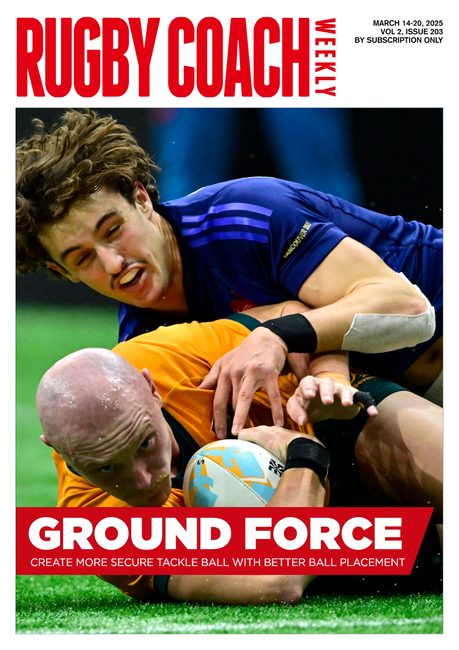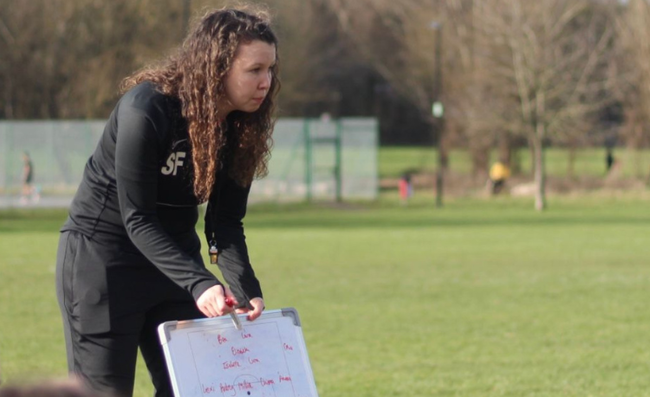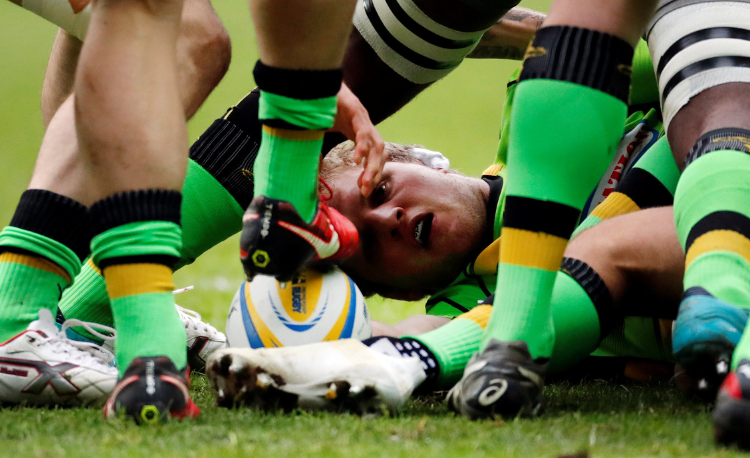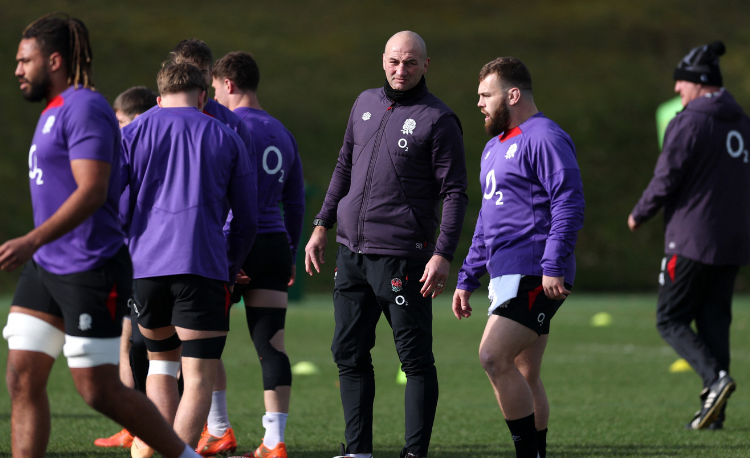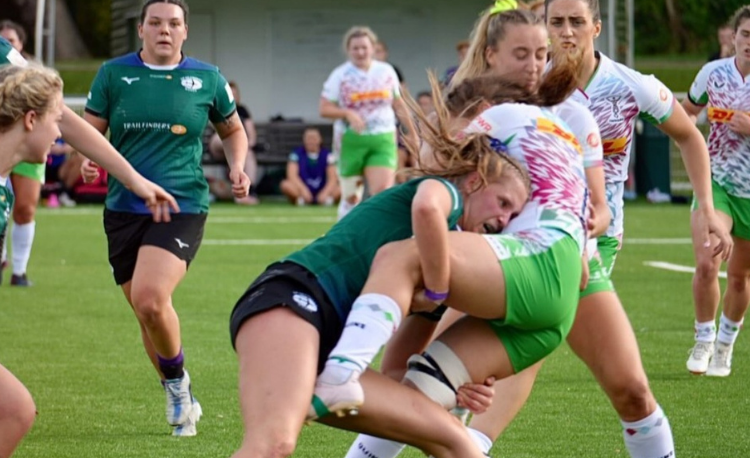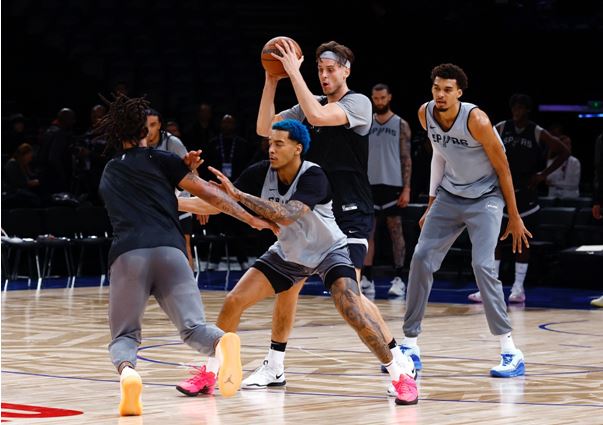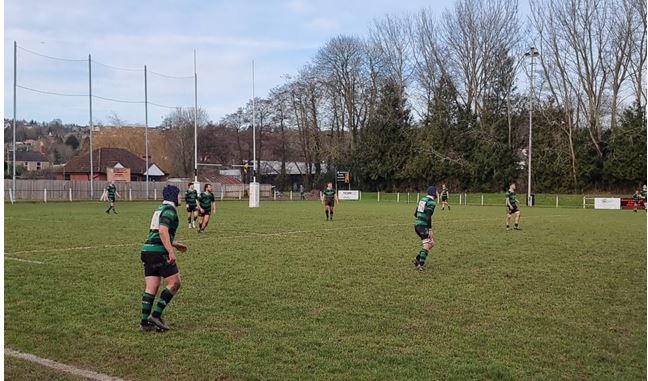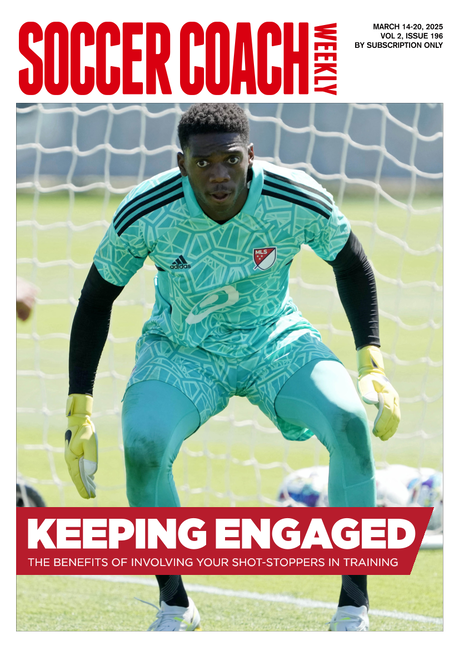Challenges to see what players can achieve
Move players into game-real situations, even if technique isn’t yet perfect – test what they can do, not what they can’t. By Utah Warriors coach Greg Cooper.
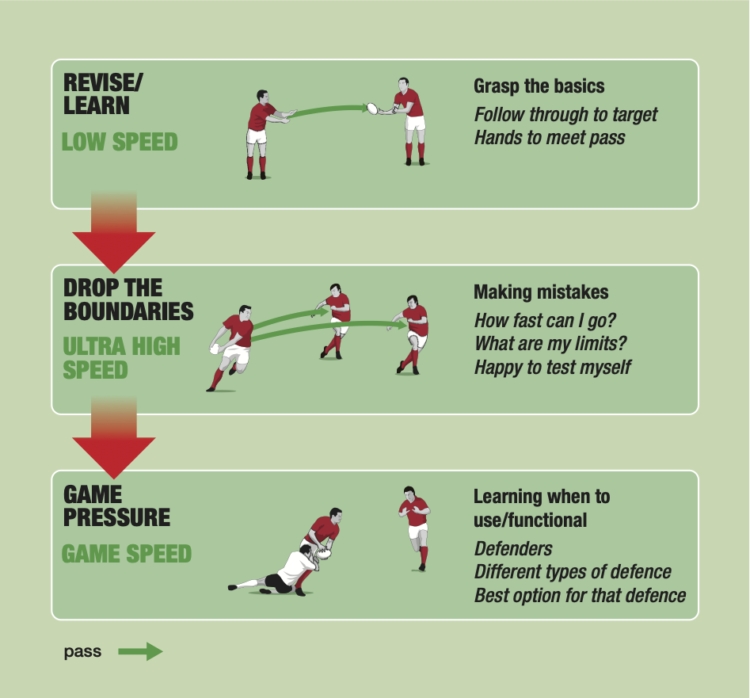
Improving players on the pitch is an interesting balance between perfecting a technique and being functional.
I believe that players need to learn good techniques, but there is a moment when the basics have been grasped and the need to focus on ’game-real’ situations becomes important for development.
That does not mean the action used is perfect, but the player can start to learn to perform under pressure. That’s when functional training comes in – putting the player into game simulations.
Passing is a good example of function over technique and I have a three-stage process.
Stage 1: Learn or revise
In this example, players learn or revise catch and pass:
- Hands reach for the ball, so it is received quickly.
- The receiver needs to keep the ball off the chest, the hips square and follows the hands through to the target (technical).
Stage 2: Dropping the boundaries
With the basics in place, the second stage is where I think the coach can really add value. I like to call it ’dropping the boundaries’.
Instead of shouting “Don’t drop the ball”, I challenge players to pass under extreme pressure, in confined spaces, and as fast as they can.
Pushing themselves to their limits, and beyond, will help them understand what they can achieve. We make it fun by successful outcomes forcing coaches to do press-ups!
We don’t encourage mistakes, but we also remove negative consequences.
The end result is usually a heightened level of mental stimulus and positive outcomes. The repetitive nature of these exercises leads to development in mental and physical execution.
Stage 3: Game simulation
The third stage is where most of us end up, and that is a closer to a game simulation.
Now the players will face different sorts of defensive pressures – for example, with defenders coming from different angles or at different paces.
You can create scenarios or replicate defensive systems that the team might expect to face from the next opposition.
Creating real, not false
I used to set up attacking exercises where they may be 10v10, but I would condition the defence to create opportunities.
Some examples of these conditions were:
- The attackers would get into an attacking shape and I would tell two defenders to drop out, creating a gap.
- Make it that two bibbed defenders could only grab tackle or that the defence would have be narrow or spread.
This meant that every time the attack formed up, there would be an obvious ’hole’ or mismatch to go for. In training, we’d get to a point where players would identify the gap every time and execute the right play.
But, in a match, we’d fail to exploit the same situations. More crucially, we’d struggle in general, because, in matches, the defence is often set and organised, and the attack does not always have the same space.
Therefore, in training, we must run against an organised defence more often – say, seven times in every 10 runs.
Now, the attack has to adjust and make the best it can against an organised defence, ready to ruthlessly exploit any moments of weakness.
If I then create a mismatch, that moment can’t be squandered. They also can’t think "it’s about time we had a chance”. To do this, I might say I’m going to run 10 plays, and not give them one chance – or, give them their only mismatch chance on the first play.
Train functional players
A good functional player will deliver the best pass for that situation.
They can only do this if they can register that situation, so your training needs to be functional – meaning the skills are performed in similar situations you’d find in the game.
In New Zealand, they spend a lot of time on functional training. The warm-up will be a mixture of technical/functional, and the main session a strong focus on functional.
For instance, we might run a phase set-up. Initially the first play from the set piece will be scripted. The 10 will have three options. From the next ruck, we might have three further options, with a punch play, a loop or a pass to the backs.
We can run this as a functional practice. The techniques are put to the test in scenarios based on what next week’s defence might be.
Thank you for reading
to enjoy 3 free articles,
our weekly newsletter, and a free coaching e-book
Or if you are already a subscriber, login for full access
Newsletter Sign Up
Coaches Testimonials

Gerald Kearney, Downtown Las Vegas Soccer Club

Paul Butler, Florida, USA

Rick Shields, Springboro, USA

Tony Green, Pierrefonds Titans, Quebec, Canada
Subscribe Today
Be a more effective, more successful rugby coach
In a recent survey 89% of subscribers said Rugby Coach Weekly makes them more confident, 91% said Rugby Coach Weekly makes them a more effective coach and 93% said Rugby Coach Weekly makes them more inspired.
Get Weekly Inspiration
All the latest techniques and approaches
Rugby Coach Weekly offers proven and easy to use rugby drills, coaching sessions, practice plans, small-sided games, warm-ups, training tips and advice.
We've been at the cutting edge of rugby coaching since we launched in 2005, creating resources for the grassroots youth coach, following best practice from around the world and insights from the professional game.

